"CASABLANCA" Remix Premiere
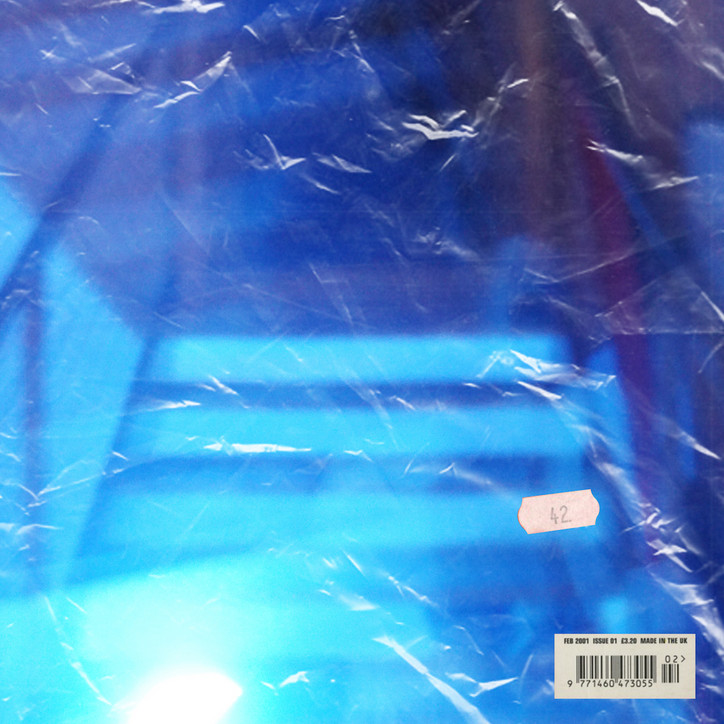
CASABLANCA serves as the first installment in a trilogy, leading to a final, full-length project.
Stay informed on our latest news!

CASABLANCA serves as the first installment in a trilogy, leading to a final, full-length project.
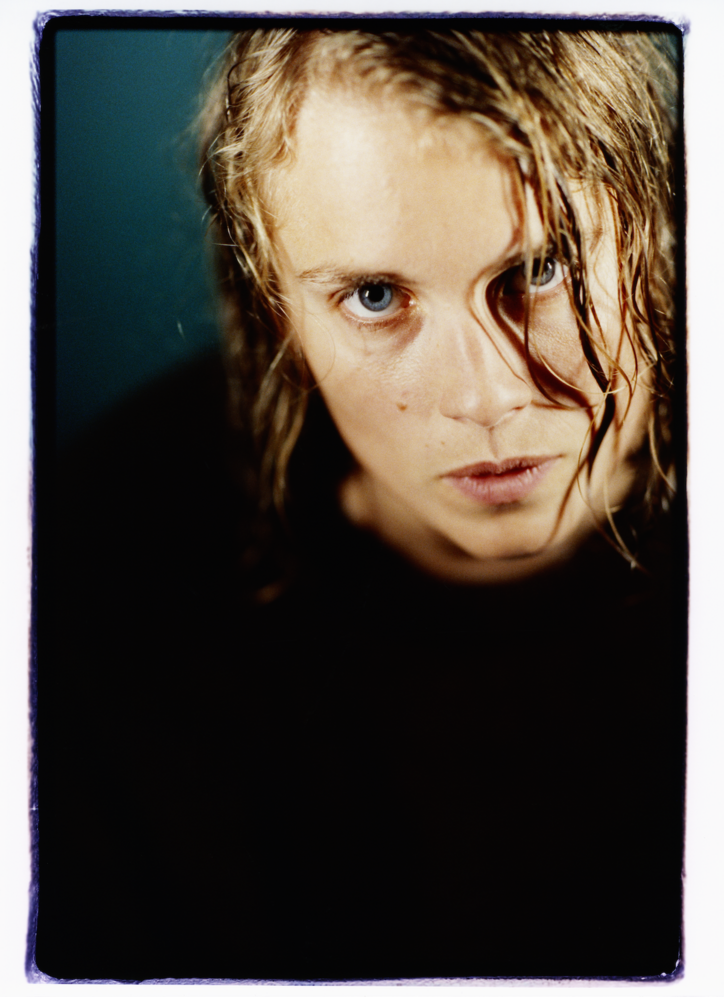
Tell me about your latest record, Big Sigh.
I took a small break from songwriting when the pandemic first hit and then found it really hard to get back into writing and being creative. It's like any muscle that you've got to keep flexing it or it's going to get unfit. Big Sigh took ages to write, and it took a long time to record in the studio; every aspect of it felt quite laborious. There wasn't the sense that it was like the easy, fun, kind of speedy records that I've made previously, but it meant that I really just focused on the songs. I wasn't thinking about what it was going to be or what I was trying to say, I was just spending a lot of time and effort trying to write the best songs that I possibly could. It was a long process, but I think it's set apart against the rest of my records because of that.
There has been a noted preoccupation with bodily expulsions, like blood and sick, in your work. These are all things that are often out of our control and can make us anxious. With your music, and particularly with this new album, do you find a safe space to work through these fears?
I struggle with the idea of loss of control and my body failing me; things like that take up a lot of space in my mind and are the root cause of so much of my anxiety. I think that to write music about these themes externalizes them and means that I have something tangible in front of me, so I can observe my fear rather than feel it. It's kind of like pulling a thread out and then being able to look at it. I also love the way that I can take something that feels very pointless and destructive, and by using that as an inspiration, write music. Then I've actually turned it into something that's useful and something that's beautiful or something that people sing along to or that is a shared experience. To take that kind of negative energy and spin it in that way helps me deal with the fact that it even exists, because it finally serves a positive purpose in my life. The best way to analyze difficult feelings is to go back into those emotions, create something out of it, and then look at it and see what it is.
This is the first record on which you've led production and played every instrument, and you are also co-directing your own music videos. How did you find yourself stepping into all of these different roles?
With the music, it's one of those things where it got to the point where I'm confident enough to do more because I've been doing this for a while now. It's about calling a spade a spade really, because I have had quite a big hand in production across my career. When you first start out, you don't realize the parameters of the word producer and what that really entails. Now all those other parts of putting an album together are things I've been playing with a lot. I've always come into the studio with my songs already very heavily fleshed out, with all the arrangements done, so with this one, it was a case of being like, “Okay, let's just cop to it now.” I was stepping into that role knowingly, but it didn't feel like a big step up because I felt like I'd already been doing it. With the videos, that was born out of frustration. A lot of the time when you work with directors, they forget that it's just a visual accompaniment to music, not necessarily a miniature film. You don't have to have a narrative; it can be abstract. Again, I didn't realize that the role of a director is actually to come up with the idea, and I have done that consistently throughout my career. I would come up with these ideas and then hand it over to a director who would change it. When you have a very clear image in your brain, it's hard when the finished product doesn't match that, especially because music videos are expensive and they're a lot of hard work to make.
The video for the track “Slime” is particularly great. It portrays you and your co-star Lea Anderson battling it out in a forest, and shows as your relationship gradually evolves into something more tender and intimate. In a similar vein to my previous question, do you feel that the space of a song, or in this case, the space of a music video, is ideal for exploring human relationships and working out some of their more gnarly aspects?
Definitely. I love writing about relationships because it's like a mirror. If you're introspective and writing about your own emotions, what better way to be able to analyze that further than see how you're reflected back in an intimate relationship with someone? They're always different, and they take you to different places, and ultimately you learn a lot about yourself. I think that's why I always come back to relationships and heartache and lust. “Slime” is very much about that initial lusty phase where there's also an element of danger. There's a lot of dangerous things about lust. It's a very intoxicating emotion, and there's the danger when that drops off, like, is that commitment something you really want to throw yourself into? Also, when you're a lesbian, there’s always people who get pissed off about situations, because everyone knows everyone. So with the video, I really wanted to capture that feeling of tension and how easily that can flip from something that's violent and dangerous into something that is tender and sexual and loving.
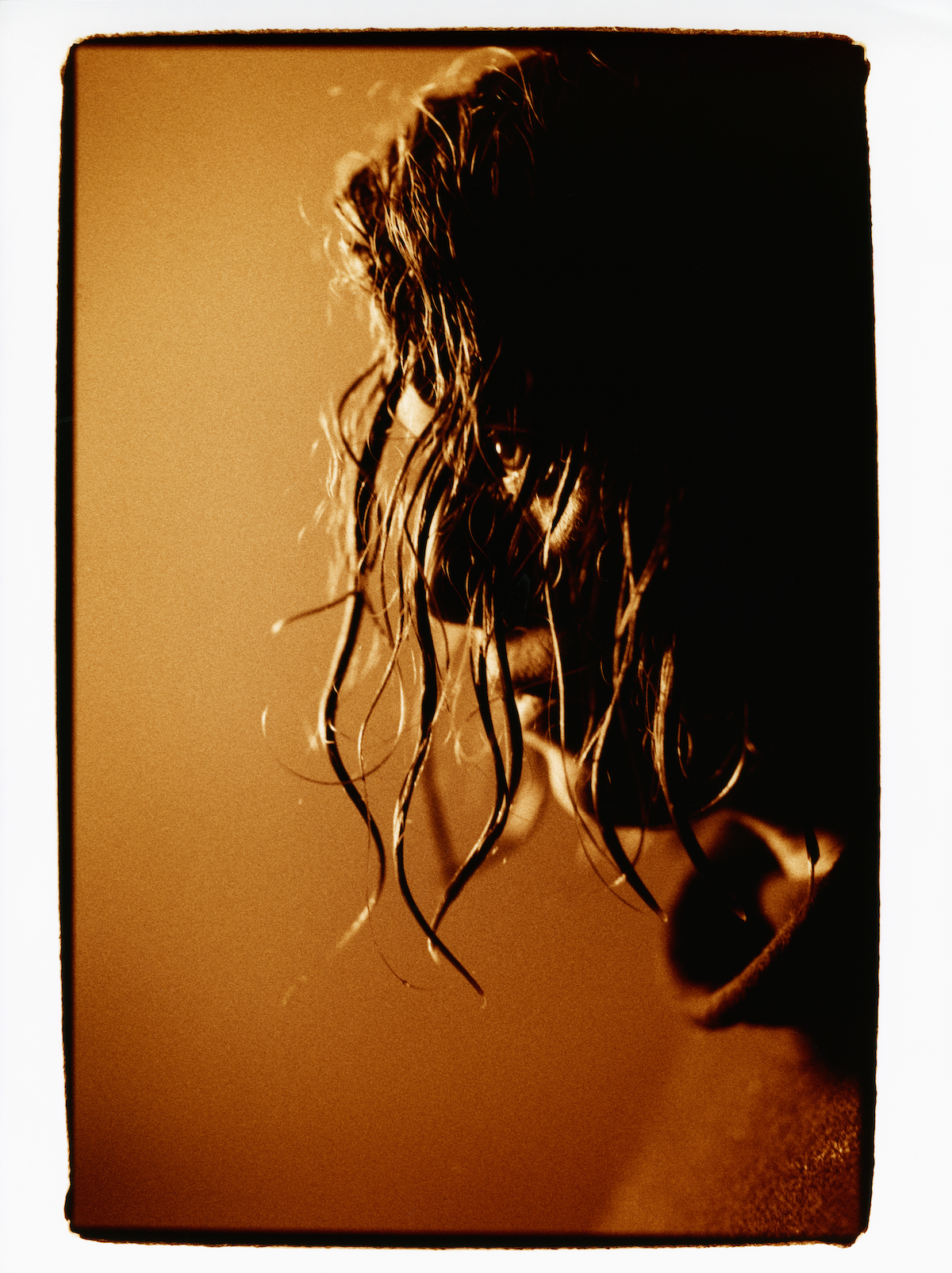
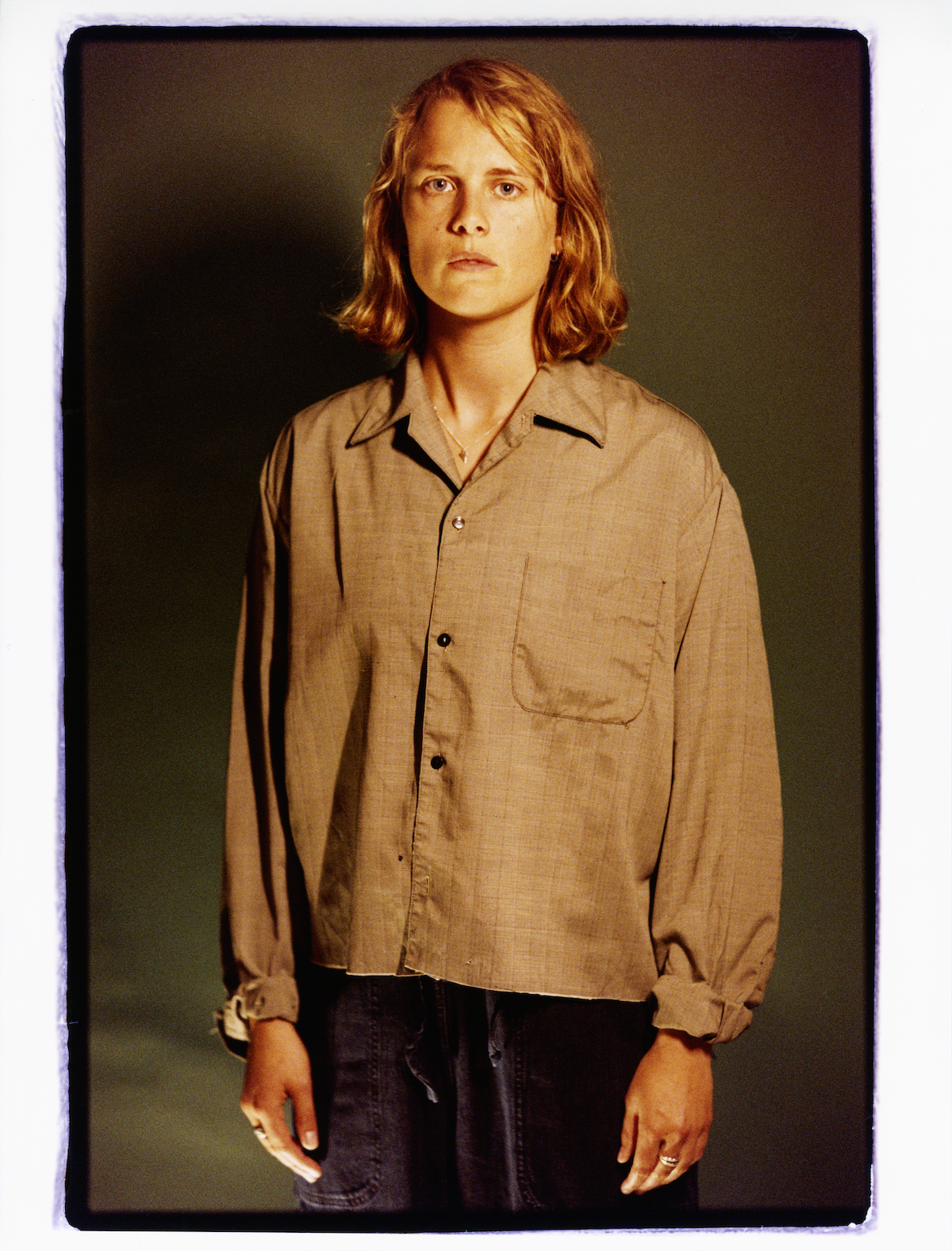
Continuing on this tension that is evident in “Slime”, how do you feel about being labelled angsty? In the past, particularly with women, angst has been something that has been problematized and branded as something that needs to be eradicated. More and more, particularly through the arts and music, the expression of angst is becoming not only acceptable for women, but popular.
All of my work is angsty. I think being an anxious, depressive person, that tends to happen. I don't mind it, it’s the kind of music I like. It is a kind of a label I would attribute to what I'd want to listen to. To me, when I think about angst or melancholy in music, I'm not thinking about the artist being anxious or melancholy. I think about harmony and suspended chords being held over dissonance and the way it can pull you into those kind of chest-crushy angsty feelings. I love that about music and I have always loved that about music, and all kinds of music. You find that in Purcell, and you find it in Massive Attack. It's something that draws me in, so I would wear angst like a badge of honour. I actually feel like angst is harder to capture than melancholy. Melancholy is something you drop into, but angst is something you have to pull out. So please, call me angsty.
Boygenius has been vocal about how you're one of their inspirations, and you have elicited comparisons to PJ Harvey, Nico, and Blur. Who would you quote as your own inspirations?
I am very narrow minded and focused when I'm making music, and I don't listen to a heap of stuff because I get paranoid about nabbing things by accident. I discovered Alex G whilst I was making this record and that was a great discovery that's going to be an inspiration moving forward. PJ Harvey demos were also a good inspiration for this record because I really liked having that peek behind the veil at her creative process. Hearing things in their rawest incarnation was really good because I wanted this record to be quite raw and not overproduced. In terms of my general career and songwriting, I think the two most pivotal artists have been Laura Veirs and The Shins. As a teenager, I listened almost exclusively to Laura Veirs and The Shins. It was Laura Veirs and the way she writes and her arrangements that made me feel like I could do it too. She was portraying such depths of emotion that I found so moving, but it wasn't like watching a kind of virtuoso guitar player shredding. She was just playing chords and singing and it was moving me, and I thought, “I think I can do that.”
You have been quoted as saying that your fan base is baby gays, straight guys, and old dudes. Do you still feel like you are singing for any particular groups of people?
That one comes back to haunt me a lot (laughs). I want anyone and everyone to connect and enjoy what I make. I certainly never think about the audience when I'm writing music. That's just distracting and causes too much pressure. I like to think it's an open book for anyone. The main crux of that quote is me trying to say that I have a whole different bunch of people at my shows and that's something I really, really love. I love looking around the room and seeing all these different people because — and I know it sounds kind of corny — everything's quite divisive at the moment. There's not a big sense of unity, which I think is really sad. When I play a gig, especially as a gay woman, and I look into the crowd and there is every kind of person in that crowd, and they're all joining in with each other to be at this event that I have created, that's a really nice feeling and I'm really proud of that. I definitely would like to keep it so that anyone and everyone can connect with my work. Unfortunately, I do feel like that quote makes it sound like I'm complaining in some way about the old dudes, but they buy merch and I love them for it.
They represent, that’s great. I also loved the idea that the inspiration for Big Sigh struck while you were in the pub loo.
This is also something that's slightly coming back to haunt me. Basically, the inspirational moment wasn't when I was in the pub loo. I had been struggling to write and I was at home and I wrote the song “Hanging”, or at least the first verse and the pre chorus, and I recorded it on my phone because I had to go to the pub to meet my friends. I was like, “Oh, this feels like quite a good song”, but you think that a lot and then you listen back and it's a pile of shit. So I recorded it into my phone, went to meet my friends and halfway through the evening, I snuck off to the loo and put my headphones in and listened to the track. I still loved it and still thought it was a great song, and it was this watershed moment. I'd finally breached those walls, and was like, “I can still do this, I can still write songs that I love and I'm proud of.” It greased the wheels for the rest of the record because I had that one in the bag. So, I wasn’t exactly inspired by the pub loo. But it was a nice moment.
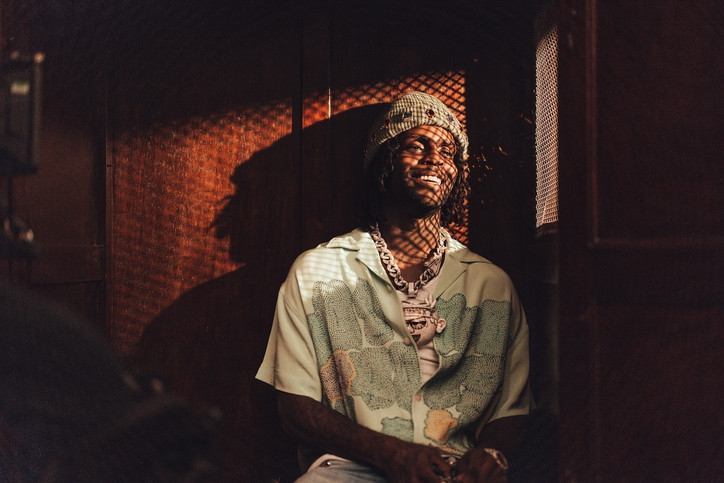
I think I can understand why the mixtape is something of a dilemma for the reviewer. The mixes are muddy, vocals are often incomprehensible. On the other hand, the marvelous unpredictability of the tracks is what makes it genius. It’s Sosa’s danger and his solution. His voice is slow and whacked out. The odd mumbling lurches into auto-tuned falsettos that are grounded by beats, TV samples, and intense special effects. It makes me feel fucked up and hilarious. The overblown bass makes me want to punch my fist into the air and scream bitch. The mixtape came out two years ago and they gave it two stars. Reddit hates it. I exhale more smoke. Laugh.
I’m in California and it’s been a decade since Almighty So came out. I still like Sosa in the car. I feel real tough when my hands beat up a steering wheel with the wind shooting through my hair. I laugh in time to the witchy laugh track in “Woulda Coulda”. I stop at a red light and hear my applause as I finish reading a reddit thread from when the mixtape was released in 2013. It’s satisfying to see user gayboicarti do a takesies-backsies of his original hate. So many suckers are presently clicking behind keyboards to absolve their misjudgements. I know it’s because they all hear the same thing. The “thank yous”. Carti says thank you. Lil Uzi says thank you. Yeat says thank you. Lucki says thank you. Lil Yachty says thank you. Now all the soundcloud rappers say it in unison, with your chest, after the gunshot sample, Thank you Sosa for letting me sleep in your bed. Good. Now all I am waiting to hear is the promised Almighty So 2 album. It’s supposed to come out today but I’m not holding my breath. It's been delayed too many times since its first announcement in 2019.
I have a big imagination, but I have no idea why Chief Keef has put over a decade of space between Almighty So and Almighty So 2. I listened to Almighty So all of last week with the loose hope that its successor would be released last Friday. It filled me with the conviction that Chief Keef is a great artist. The album earned him pioneer status. Change isn’t evil. Laughter is contagious. I bite at the inside of my cheeks and sigh against my parked car, reading the new release date of May 10th, 2024. If he follows through, I know how my first time looks.
(DREAM SCENARIO): MAY 10, 2024
I clench my jaw and shift my hijacked car into sports mode. I’m speeding down the Pacific Coast Highway pretending I’m some big-shot in GTA V. It’s 7 pm and the red dot sinks towards tomorrow. I’m in for a Miami bruise sunset, and if I close my eyes it smells like home too. Salty. I hug the coastline as I click on the album. A young Sosa smiles up at me from a picture frame. It looks like Lil Wayne’s album art. Sosa loves Wayne. I smirk. I love them. I press play, turn the volume up, and flatten the pedal. The bass pulses into my tanned ass and I have this fucked up smile on my face because I’m imagining all the ways I can explode my vehicle. It’s banging, it’s out of control. I punch out into the violet. The rich people stand on their balconies and stare through binoculars at my tail. They whisper curses under their breath because they want to feel this free too.
RE: REALITY: MAY 11TH 2024
I’m now gunning it down the Pacific Coast Highway and there is no baby Sosa grinning up at me. Nonetheless, Almighty So 2 is out and I can believe in it. Chief Keef’s release made my heart, head and hat spring for the ceiling. I may not physically be in my car, but I’m living a lifestyle. I am swimming upstream in a sea of bodies beneath hundreds of Tokyo’s ultraviolet escort signs with my headphones in. The countless snare rolls and the bizarrely amusing lyrics puts that twisted evil grin on my face. It’s charmingly Sosa. I feel fueled up and hot, listening to him rap in “Treat Myself” about wearing yellow diamonds, looking like he peed himself and how he’s gotta treat himself. I slow down in front of one of the glittering escort signs. Should I treat myself and rent a boyfriend after I finish my second round of listening to huge beats and underwear filling bass? Why not? Sosa produced the album in its entirety, and he pays homage to many genres, evoking the ghost of Carl Orff in intro track “Almighty”, then crashing into tracks that source the seventies, soul, and underground drill. It’s a culmination and development of all his previous work — a solid delivery with sharp mixing that cuts through the thickness of mundanity. I pump my arms, hitting a sprint. I skid up the hyper clean sidewalks, redlining in wonder past endless businesses marketed in the most adorable way possible. I could pitstop into any of these places and enter a new story. Suits karaoking, bustling izakayas serving horse meat, chef’s murdering live shrimp with vodka at your table, and bartenders singing kanpai as we take a shot of snake liquor together that scorches down my esophagus. I want to see, hear, taste, and feel it all. Sosa’s jabbing cadence thrills me and the timing couldn’t be better. Its organized madness matches this city and my mind. Spring’s sprung, and Sosa gifted us all with a phantom whip. Come on — it’s summer.